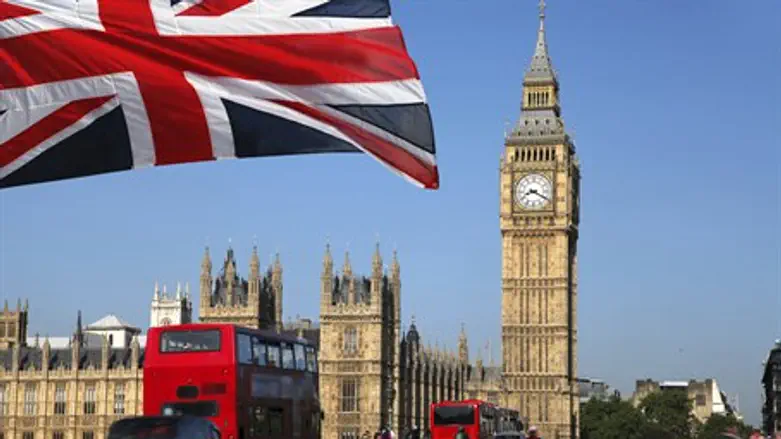
As of today, the British government will be enacting measures to prevent public bodies from engaging in or endorsing boycotts of the State of Israel.
The measures, announced earlier this week, would make such moves illegal, and represents a serious blow to groups like the so-called BDS Movement, which seek to impose international boycotts and sanctions on Israel.
The bill is specifically aimed at preventing local authorities and bodies from being hijacked by anti-Israel extremists to promote radical foreign policy agendas targeting the Jewish state.
UK Cabinet Office Minister Matthew Hancock formally announced the commencement of the measures during his visit to Israel Wednesday.
"We need to challenge and prevent these divisive town hall boycotts," he said in Jerusalem. "The new guidance on procurement, combined with changes we are making to how pension pots can be invested, will help prevent damaging and counter-productive local foreign policies undermining our national security."
An explanatory statement from the British government outlined how the "guidance published today makes clear that procurement boycotts by public authorities are inappropriate, outside where formal legal sanctions, embargoes and restrictions have been put in place by the Government."
"Town hall boycotts undermine good community relations, poisoning and polarising debate, weakening integration and fuelling anti-Semitism.," it added, while "locally imposed boycotts can roll back integration as well as hinder Britain’s export trade and harm international relationship."
"All contracting authorities will be impacted by this new guidance including Central Government, Executive Agencies, Non Departmental Public Bodies, the wider public sector, Local Authorities and NHS bodies.
"Any public body found to be in breach of the regulations could be subject to severe penalties," it said.
Explaining the reasoning behind the measures, the statement went on to note that it was merely enforcing compliance with international law - specifically the World Trade Organization Government Procurement Agreement treaty, an international market access agreement which "requires all those countries that have signed up to the Agreement to treat suppliers equally.
"This includes the EU and Israel. Any discrimination against Israeli suppliers involving procurements would therefore be in breach of the Agreement."
The British government qualified, however, that it did not effect London's "existing policy support for clear and transparent labelling of settlement products to ensure that individual consumers are able to make informed choices before they buy."
British Jewish leaders have already lauded the move.
"Boycotts are an impediment to community relations and sow division and discord, ultimately fuelling antisemitism, so today's announcement is welcome," said Simon Johnson, Chief Executive of the Jewish Leadership Council, on behalf of the Fair Play Campaign Group.
"Local councils, universities and other public bodies shouldn't have their own foreign policy. The government’s decision to make this clear emphasises inclusivity over boycotts and coexistence over further divisions. This can only be positive, both within the UK and in the Middle East."